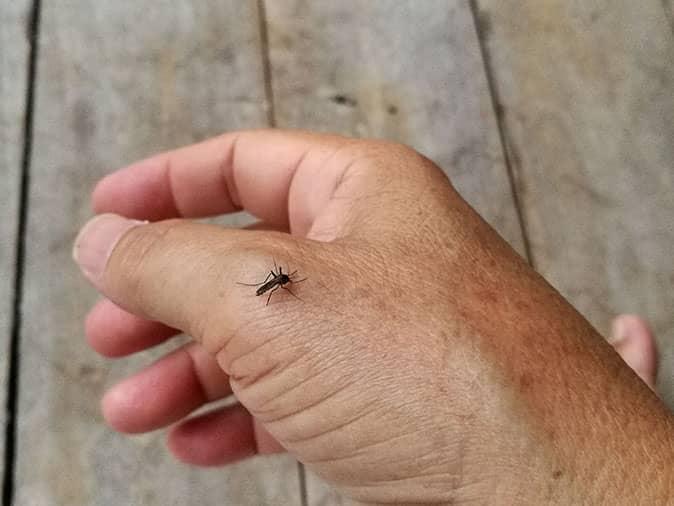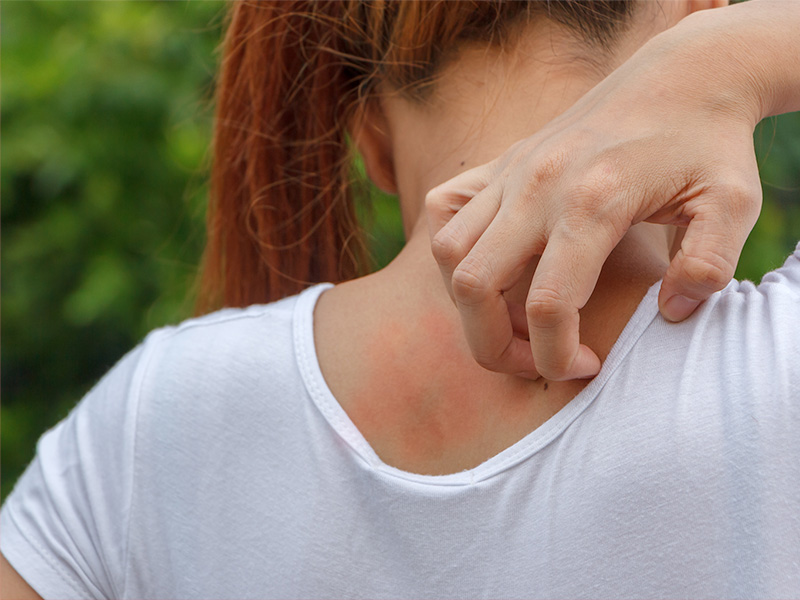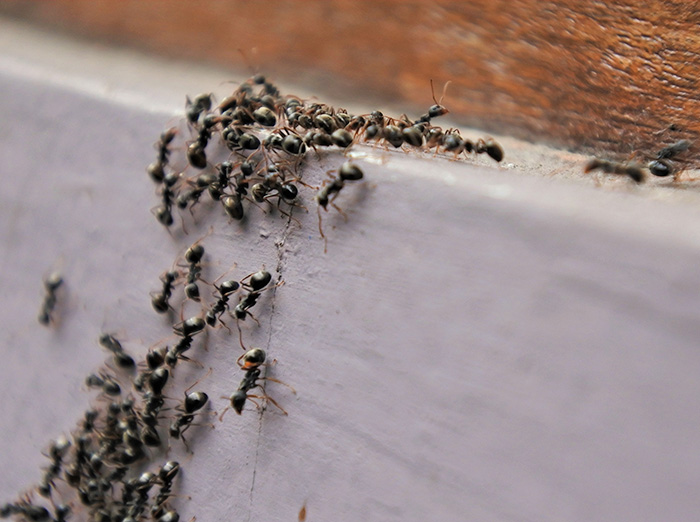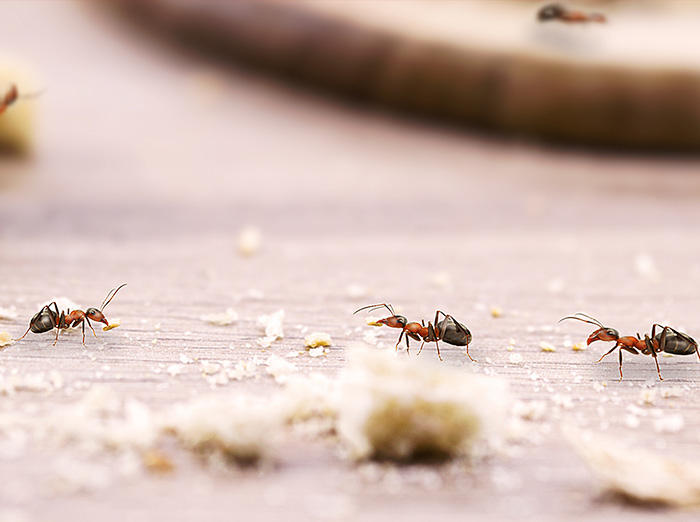What Attracts Mosquitoes To Humans?
Have you ever wondered what attracts mosquitoes to humans? These pesky insects seem to have a preference for certain individuals, leaving others relatively untouched. In this blog post, we will delve into mosquito attraction, uncover the factors that make some people more appealing targets than others, and then armed with this knowledge and because we want you to enjoy your time outdoors without becoming a mosquito magnet, we’ll share tips for preventing mosquito bites and making your yard less attractive to these summer pests.

How mosquitoes use taste and smell sensors to zero in on their victims
Before we list out mosquito attractants, let’s take a moment to discuss mosquito taste and smell sensors. Female mosquitoes have specialized taste receptors on their antennae that can detect trace amounts of carbon dioxide (CO2) released when we exhale. This helps them zero in on potential targets even from afar.
In addition to CO2, mosquitoes also rely on olfactory cues such as lactic acid, ammonia, or other volatile substances present on our skin surface which vary among individuals based on factors like genetics or diet. The combination of these unique smells makes each person more or less attractive to different mosquito species.
What makes mosquitoes attracted to humans
Let’s face it, mosquitoes are annoying, worse the illnesses infected mosquitoes spread through their bites in Denver and throughout Colorado can result in poor health. Understanding what attracts mosquitoes to humans can help minimize your risk of acquiring West Nile virus and other mosquito-borne illnesses. Here are some of the most common mosquito attractants:
- Carbon Dioxide
Mosquitoes are attracted to the carbon dioxide we exhale. When we breathe, we release carbon dioxide into the air, which mosquitoes can detect from over 150 feet away. The more carbon dioxide you produce, the more attractive you are to mosquitoes. An excellent example of this is pregnant women. During pregnancy, a woman’s respiratory system changes, and that results in an increase in the amount of air inhaled and the amount of carbon dioxide exhaled. As if pregnancy wasn’t hard enough in the summertime, right? - Body heat
Mosquitoes are also attracted to body heat. When we're active or exercising, our bodies produce more heat, making us more attractive to mosquitoes. Additionally, mosquitoes are attracted to warm-blooded animals, so they can detect our body heat from a distance. - Chemicals in sweat
Chemicals found in human sweat, such as lactic acid and ammonia, can also attract mosquitoes. These chemicals are produced by our bodies and can vary depending on factors such as diet, genetics, and overall health. - Blood type
Research has shown that mosquitoes are more attracted to certain blood types than others. In fact, research shows that people with Type O blood are more likely to attract mosquitoes than those with Type A or B blood. - Size & movement
Mosquitoes are also attracted to larger targets and people who move around a lot. This is because larger targets produce more carbon dioxide and heat, while movement can create air currents that carry the scent of chemicals in sweat. - Alcohol consumption
Drinking alcohol can also make you more attractive to mosquitoes. When we drink, our bodies produce more heat, and our skin releases ethanol, which can be a mosquito attractant.
Tips for preventing mosquito bites
To minimize the chances of getting bitten by mosquitoes, we recommend the following tips:
- Time outdoor activities wisely
Avoid spending time outside when mosquitoes are more likely to bite. Here in Colorado, mosquito activity is high at dawn and dusk and peaks during the early evening hours. - Avoid alcohol consumption if you’re planning on spending time outdoors
Since beer and alcohol consumption can make us more attractive targets for mosquitoes, it would be wise to limit your alcohol intake if you plan on being outside in areas where mosquitoes are likely to be active. - Wear protective clothing
Opt for long-sleeved shirts, pants, and closed-toed shoes to reduce exposed skin where mosquitoes could potentially bite. Light-colored clothing is also less attractive to these insects. - Repair or replace torn window and door screens
Keep mosquitoes out of your home and reduce the chances of being bit while you sleep by repairing or replacing screens that have rips and holes.
How to make your yard less attractive to mosquitoes
In addition to personal protection measures, making your yard less appealing to mosquitoes can help reduce their presence around your home and property. Consider implementing the following mosquito prevention tips:
- Eliminate standing water
Mosquitoes lay their eggs in stagnant water sources such as birdbaths, empty flower pots, and puddles; removing these breeding grounds will help control their population. - Maintain landscaping
Keep grass trimmed short and bushes pruned back; this will eliminate hiding spots for adult mosquitoes while also reducing potential egg-laying sites.
Sign up for seasonal mosquito control and let our pros take on the mosquitoes
Rather than spend your summer fighting off mosquitoes, why not sign up for professional mosquito control? At EnviroPest, we offer seasonal mosquito treatments in Denver, Colorado Springs, and throughout NoCo that not only target adult mosquitoes but also prevent these biting pests from reproducing. With service every month May through September, you can count on our fully licensed pest control specialists to drastically reduce the mosquito population on your property this summer! Contact us today for a mosquito control estimate!

Testimonials
GETTING STARTED IS AS EASY AS 1-2-3
REQUEST FREE ESTIMATE
Pest Solutions For Homes & Businesses
We understand that pest problems can be unsettling and frustrating, but the solution shouldn't be. For over 55 years, we've been helping folks right here in Colorado take care of ants, spiders, mice, mosquitoes, wasps, bed bugs, bats and most other creepy crawly things. We'll get there fast to solve the issue quickly and affordably - Guaranteed.



